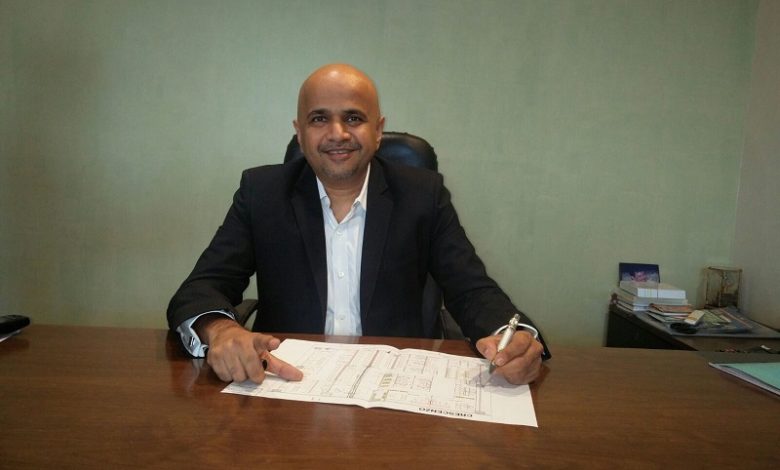Tech-disruption, writing a new real estate tradition
Technology has assumed the critical role of shaping real estate strategies observes Shah, Managing Director, Parinee Group

The adoption of technology in real estate has always been a challenge. But the past two years have expedited change as leading industry players have realised the benefits of investing in technologies to boost consumer convenience and increase sales. One of the major contributors to the world economy, real estate has a global value of over $ 7,196 billion. With technology taking its reins, the sector is about to grow even more. Digital being the way forward, 2022 is set to see the Real Tech disruption taking shape. The Indian real estate market has been steadily getting digital and virtual with a 20 percent post-COVID-19 increase in digital real estate transactions demonstrating the use of PropTech.
Shaping Strategy
Technology has assumed the critical role of shaping real estate strategies, and given the investment pressures that retailers face today, that need is greater than ever before. Available PropTech has empowered developers to improve almost any decision they take. Technology is now playing a central role from drafting plans, financing methods, construction techniques to marketing homes and commercial properties. PropTech offers the benefits of bringing down costs and also opens new ways of doing things unlike before.
While the brick-and-mortar image of the real estate sector won’t change, technology has now begun to drive activity on the backing of intelligent software. Just as the Internet has transformed how we transact, say from booking taxis to finding a local holiday home anywhere in the world, the real estate sector too has drawn its benefits. As consumers become demanding, seeking more control and better value for money from their real estate transactions, technology has provided the answers.
This shift from how age-old practices that have begun to drive real estate is being helped by PropTech. Buyer-seller consultations taking place on online platforms have become common. These platforms ensure complete openness and access to every piece of the project or transaction-related information. Consumer-focused technology has helped improve the process of buying and selling a home; from listing a property for sale right through to progressing to completion.
New Possibilities
Property technology offers applications both for developers and those who will live or work out of these constructions. Online product catalogues, virtual tours of project sites, transacting online and even making property registrations are possible with the use of available technology. Proptech has brought in the virtual reality element which makes it simpler for developers to market both residential and commercial projects. VR allows users to collect data and analytics, while also focussing on sustainability. Solar energy harvesting, smart lighting solutions are possibilities whose challenges have been easily overcome and carbon footprint reduced.
The role of technology in real estate business transactions is also on the rise. As can be seen from the alternate financing methods for commercial and residential real estate, technology like blockchain is being explored. Its potential to transform core real estate operations like purchase, sale, financing, leasing, and management transactions are being tried.
Available technologies are pushing forward new-age solutions in the construction phase of buildings that are helping both in user and management experience. Traditional methods of construction are changing at a fast pace as developers are setting cost-saving targets and looking at building more robust structures. As it stands against the test of harsh conditions using technology is being preferred as an aid to the construction industry’s working. As builders turn futuristic, UAVs or drones are enabling cost-effective, quicker, and safer construction. From being used for aerial photography of high-rise structures in the past, drones are being deployed to map a site and build a repository of images in 2D and 3D that come in handy while sketching precise measurements based on coordinates. Robotics to automise masonry and bring in precision, the use of bots in quality assurance, smart bricks, self-healing concrete, etc. are various changes in building technology that has evolved over time.
New-age Spaces
As technology has evolved it has ensured that imagination gets transformed into reality both in commercial and well as residential side real estate. Let’s look at the commercial side first. Innovative spaces that streamline day-to-day activities into seamless experiences can be seen in office spaces being created on a phygital tech-driven concept. The requirements of a new normal have seen commercial real estate developers introduce spaces that offer the best environment of technology and where real-world experiences become more emerging. Interactive mobile technology has made this essential upgrade a possibility in today’s time. Users find phygital spaces to be convenient, intuitive, safe, experiential, smart, and indulgent. Technology has transformed a commercial space to now easily connect you with your expansive business plans and contribute towards your overall growth, yet offer more safety at work. Phygital makes use of technology to create a digital experience that is user-friendly and seamless for the customer offering a new, more powerful experience.
On the residential side, smart home technologies provide homeowners with convenience and benefits of savings on cost. Just like their smartphones or tablets, homeowners have adopted technology, which allows them to control appliances, thermostats, lights, and other devices remotely. Home automation has developed into one of the biggest and fastest-growing markets in technology. With a potential to grow on as its use for home security, as a personal assistant, or even for looking after the elderly or disabled, and more, has only begun to get adopted. Smart homes in India are being commonly offered by developers even as they can be conveniently set up through wireless or hardwired systems in existing homes. Residents of smart homes have greater control of the energy they use while automation improves the quality of life. Over 120 million smart home devices are believed to be in use globally.
Overall, technology has proved to be a boon to builders who are now able to use technology to analyse data. They are able to use data from emerging tech-based solutions right from a pre-construction stage to construction and even in the post-occupancy scenario. All this on a single interface dashboard is possible with technology. Technology is helping improve and streamline future projects as it strengthens client relationships with developers as they offer quality projects and meet buyer aspirations.





